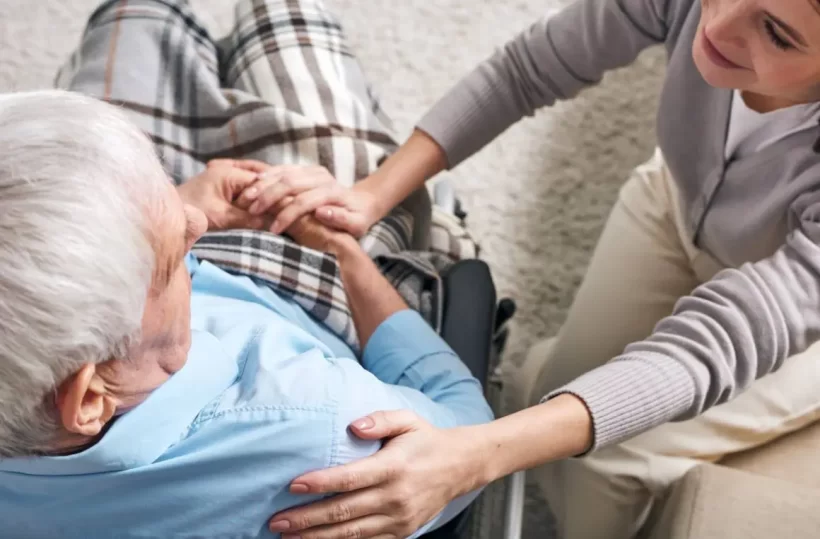The Advancements and Implements in Senior Home Care
Warning: Undefined variable $post in /home/dietofli/public_html/wp-content/plugins/code-snippets/php/snippet-ops.php(582) : eval()'d code on line 3
Warning: Attempt to read property "ID" on null in /home/dietofli/public_html/wp-content/plugins/code-snippets/php/snippet-ops.php(582) : eval()'d code on line 3
The estimated reading time is 4 minutes
Warning: Undefined variable $post in /home/dietofli/public_html/wp-content/plugins/oxygen/component-framework/components/classes/code-block.class.php(115) : eval()'d code on line 3
Warning: Attempt to read property "ID" on null in /home/dietofli/public_html/wp-content/plugins/oxygen/component-framework/components/classes/code-block.class.php(115) : eval()'d code on line 3

Innovative solutions provided by technology have revolutionized the delivery of senior home care services, specifically enhancing monitoring, communication and safety for elderly individuals. This article delves into the latest technological advancements that are transforming senior home care; ultimately offering seniors and their families peace of mind along with an elevated quality of life.
Remote Monitoring Systems
Caregivers and family members can monitor seniors' well-being from a distance through remote monitoring systems. Such systems frequently integrate sensors and wearable devices that detect falls, monitor vital signs, and track daily activities. Offering real-time alerts and notifications enables caregivers to ensure senior safety by promptly responding to emergencies - an advantageous feature when seniors find themselves alone at home.
Smart Home Automation
Seniors harness the ease of control over diverse aspects of their home environment through smart home automation technology. Voice-activated assistants, along with smart thermostats and lighting systems - these devices not only enhance comfort and convenience for seniors but also foster independence. Customizable features in a smart home cater to specific needs senior citizens may have; adjusting temperature settings, illuminating rooms or securing doors can all be done at their command: either by simple voice instructions—or via smartphone applications – tailored specifically for them.
Medication Management Tools
Managing multiple medications is tough for seniors, but technology—like pill dispensers with alarms and reminder apps—make it easier, improving adherence and peace of mind for them and their caregivers by lowering the risk of missed doses or errors.
Telehealth and Virtual Care
Senior home care increasingly popularizes telehealth and virtual care services, enabling seniors to remotely access medical consultations and support. Seniors utilize video conferencing to connect with healthcare professionals for routine check-ups, medication management, chronic disease management. Consequently, this approach improves senior's access to health services despite potential mobility limitations; furthermore reducing in-person visits significantly minimizes their illness exposure risk.
GPS Tracking Devices
Valuable tools: GPS tracking devices. These prove particularly useful for seniors—specifically those with dementia or cognitive impairments—who may wander or become lost. By wearing these wearable GPS trackers and carrying personal locator devices, seniors' whereabouts are under constant monitoring by their caregivers in real-time; if they stray from home, a swift location is possible. With this additional layer of safety and security provided by the GPS tracking devices, caregivers can act with confidence to respond quickly to emergencies – thereby ensuring the well-being of their senior charges.
Emergency Response Systems
Elderly individuals who live alone or face fall risks use vital tools like personal emergency response systems (PERS). These devices, either wearable or stationed in the home, let users press a button to quickly call for help. Pressing this button sends an alert to a monitoring center or caregivers, ensuring rapid assistance. With PERS, seniors maintain independence and security, knowing help is easily accessible.
Communication Apps and Social Platforms
Seniors, particularly those potentially facing isolation or residing far from their families, must maintain a vital connection with loved ones for optimal mental and emotional well-being. Communication applications and social platforms facilitate this bond by allowing seniors to engage in video calls, messaging, and social networking with friends and family members. Such interactions not only cultivate social engagement but also diminish feelings of loneliness while encouraging mental stimulation; thus bolstering senior citizens' overall happiness as well as quality of life.
Digital Health Monitoring Devices
Seniors, empowered by digital health monitoring devices like blood pressure monitors, glucose meters and pulse oximeters; can take control of their health--managing chronic conditions with more efficacy. These tools supply valuable health data to seniors: information they can share with healthcare providers for remote monitoring and management. Through home-based tracking of vital signs alongside health metrics; seniors detect early warning signals of potential issues – a proactive approach towards maintaining optimum well-being.
Technological advancements have revolutionized elderly care with new monitoring, communication, and safety tools. These include telemedicine, smart homes, and automated medication systems, enhancing seniors' independence and offering peace of mind to their caregivers. Adopting these technologies allows for more tailored and efficient care, improving seniors' quality of life.














